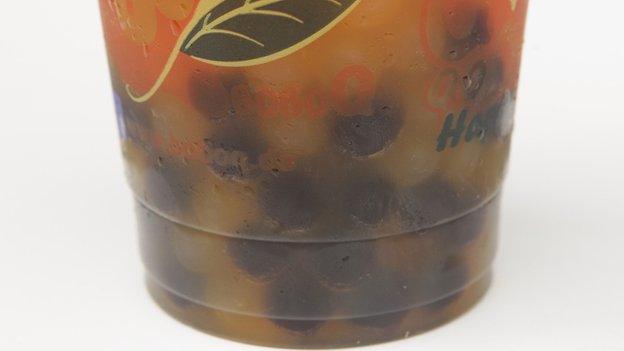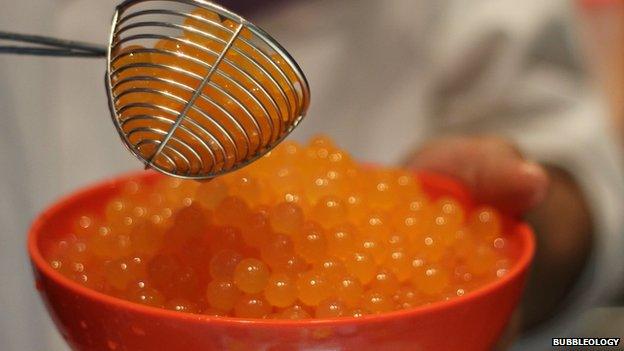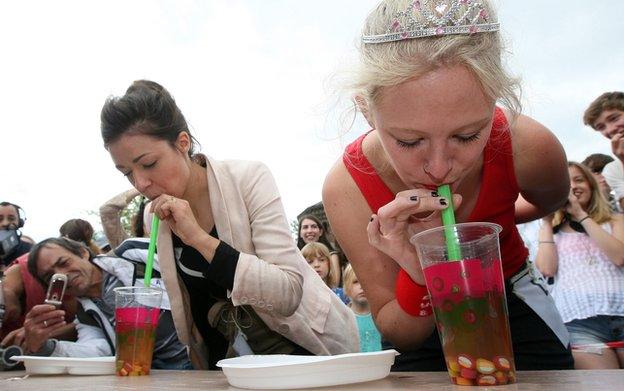The four-year spread of bubble tea across the UK
- Published

Four years ago bubble tea was relatively unknown in the UK, but the drinks are now ubiquitous on High Streets, from cities to small towns, writes Lucy Townsend.
It is often brightly coloured, sometimes served with milk, with a layer of jelly-like globules - tapioca balls - that settle at the bottom of the cup. Drunk through an extra thick straw with a spoon-shaped tip, it is a mouthful of tea and chewiness - both a drink and a snack,
Chorley in Lancashire got its first bubble tea bar in July. Huddersfield has Bubble n Shake, there is a mobile bubble tea van in Bristol, and it can be found in cities from Glasgow to Portsmouth.
"It's chewy and odd," says restaurant critic Marina O'Loughlin. "It's slippery and strange, but weirdly more-ish. I love the way it comes with a flat straw so I can scoop out the balls and they plop into my mouth."
Bubble tea hails from 1980s Taiwan. It was an evolution from the country's street tea vendors who began experimenting with fruity flavours and colour to entice customers. The "bubble" actually refers to the froth on top of the drink which comes after it is violently shaken - some cafes use a machine especially for shaking.

How the tapioca balls arrived in the drink is a matter of debate - though the most common story is that product development manager Lin Hsiu Hui was sitting in a staff meeting and poured the tapioca from her pudding into her Assam iced tea. The result was considered delicious.
Assad Khan, a former investment banker, opened the UK's first bubble tea shop in Soho, London, in 2011. He came across the drink in a "small hole-in-the-wall cafe in New York", and now has his own Bubbleology cafes across Europe and the Middle East.
"It's an absolute phenomenon," he says. "It is something that at first was a bit difficult to grasp, it's a different taste experience, but I never had any doubt that it would work. "My favourite flavour is taro milk, which is a root vegetable, lilac in colour."
While growing in the UK, it is even more popular in Germany, according to market research firm Mintel. Even McDonald's has started serving it.

A bubble tea drinking competition in Germany
Subscribe to the BBC News Magazine's email newsletter to get articles sent to your inbox.